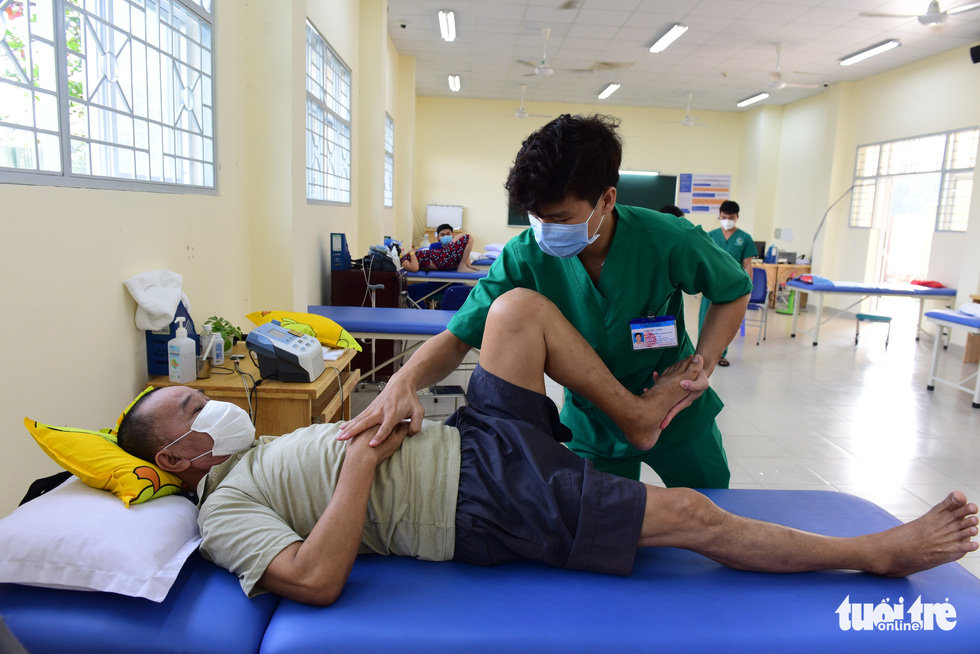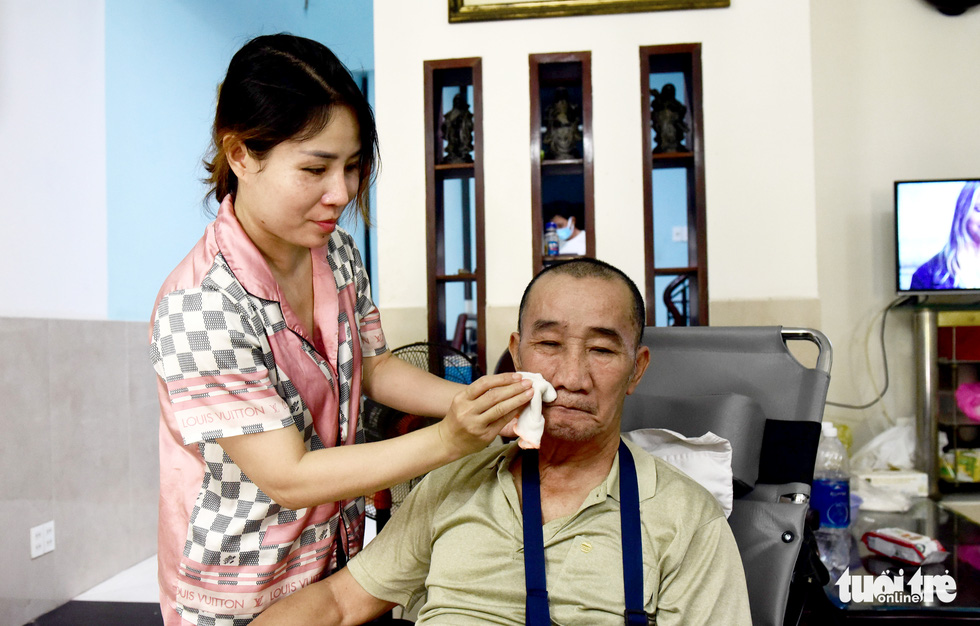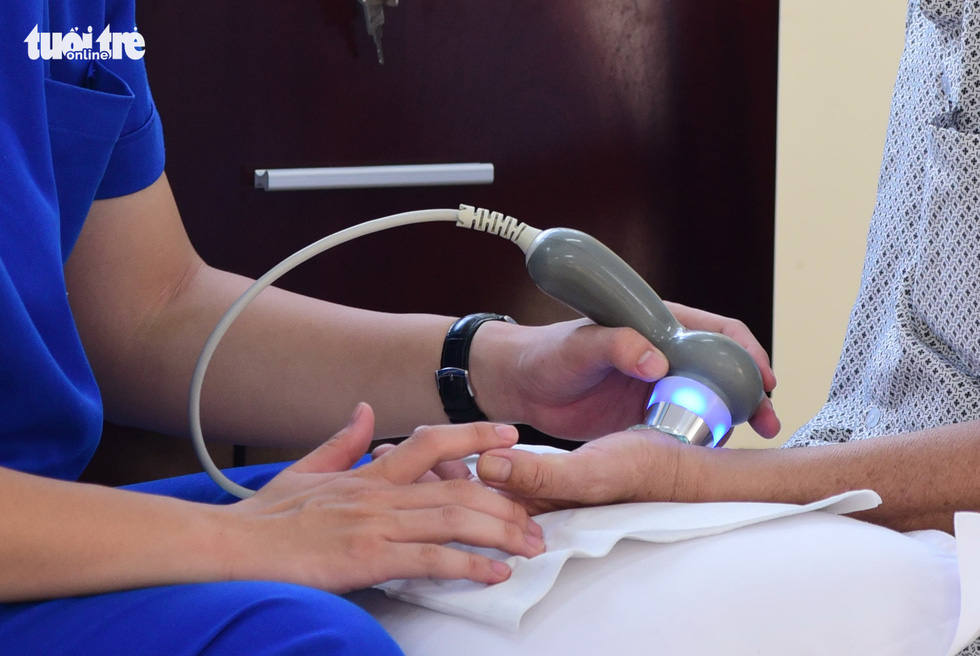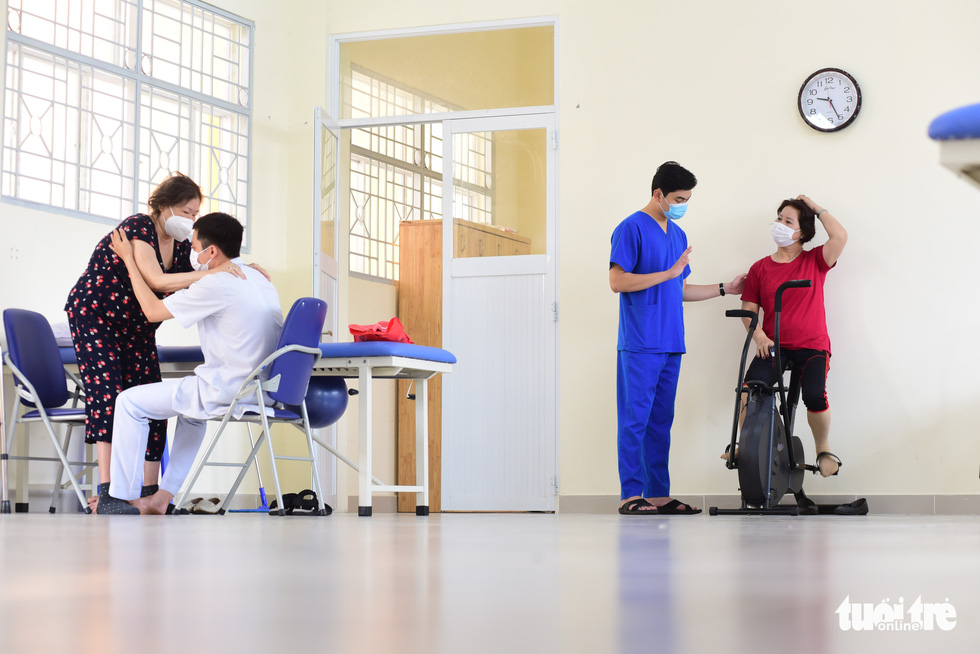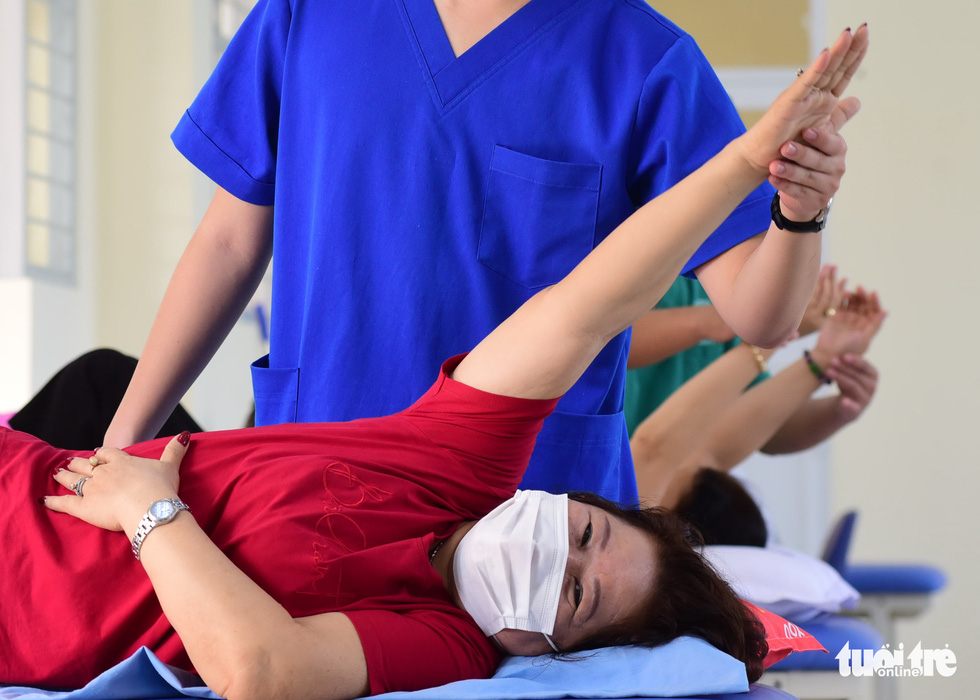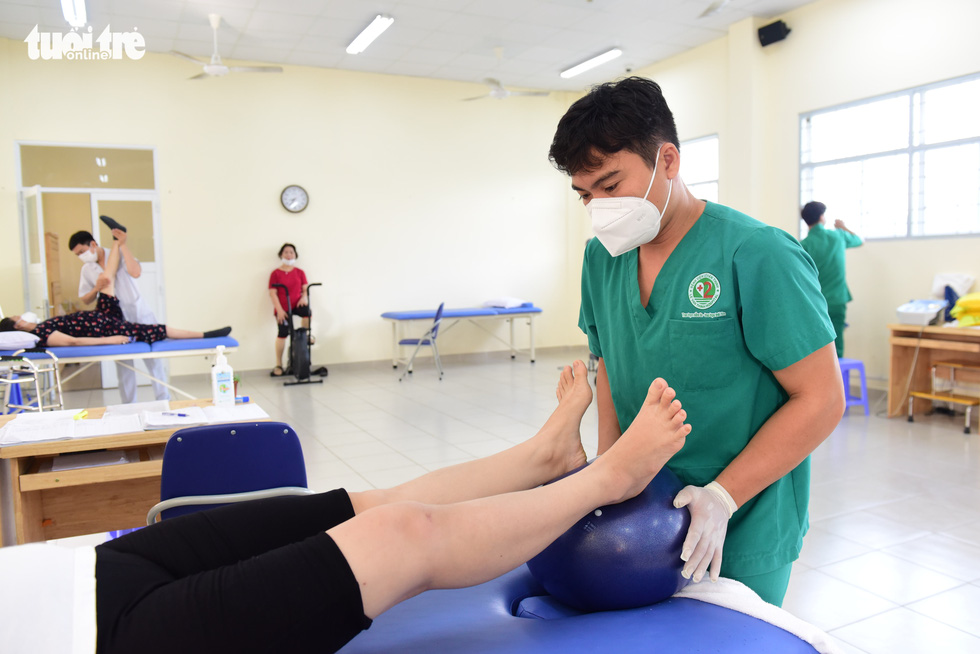Many Vietnamese people who have recovered from COVID-19 but have still suffered from post-COVID-19 symptoms have to seek support from hospitals, such as Le Van Thinh Hospital in Ho Chi Minh City.
Such symptoms that may last for months after the infection has gone are called post-COVID-19 conditions or ‘long COVID’ syndromes, according to the World Health Organization (WHO).
In general, COVID-19 patients recover after two to six weeks, and while most of them return to normal health, some can have symptoms that go on for weeks or even months after their recovery from the respiratory disease, WHO said, adding that they are not infectious during this time.
Post-COVID-19 conditions occur in individuals with a history of probable or confirmed SARS CoV-2 infection, usually three months from the onset of COVID-19 with symptoms.
They can last for at least two months and cannot be explained by an alternative diagnosis.
Among such sufferers of long COVID are Thanh Thanh and her father, who have been relying on a post-COVID-19 rehabilitation program at Le Van Thinh Hospital, which is situated in Thu Duc City.
Over the past two months, Thanh, a 43-year-old resident from neighboring Binh Duong Province, took her father in a wheelchair to the hospital for treatment for his serious post-COVID-19 complications.
|
|
| This image shows Thanh Thanh looking after her father at Le Van Thinh Hospital in Ho Chi Minh City, Vietnam. |
In August this year, Thanh and seven other members of her family contracted the coronavirus from an unknown source.
Her mother, who had some underlying health conditions, died later while the other members gradually recovered.
Her father, Huy Dong, has suddenly suffered from vague perception and his limbs have almost been paralyzed since her mother’s death.
The father and daughter then rented a small room near Le Van Thinh Hospital so that they can conveniently join a post-COVID-19 rehabilitation program, including physical therapy exercises, under the instructions of the hospital’s doctors every morning.
Over time, Dong’s health conditions have been improved thanks to his compliance with all requirements of the rehabilitation program.
|
|
| This image shows a former COVID-19 patient being treated under a COVID-19 rehabilitation program at Le Van Thinh Hospital in Ho Chi Minh City. |
“We believe that one day my father will recover from his post-COVID complications and return to our normal life like before,” Thanh said while pushing the wheelchair carrying her father to their rented room.
“Many COVID-19 patients have suffered from great psychological shocks when they witnessed the deaths of other patients in the same room of a hospital, or when they have lost many family members due to the disease,” said Dr. Tran Quang Trong from the hospital’s psychology department.
The doctor emphasized that such shocks badly affect their health and constant support from their relatives for their self-efforts is essential for them to recover from their long COVID condition.
In a large study published on EClinicalMedicine of the UK’s Lancet medical journal in July 2021, researchers said they had recorded 203 post-COVID-19 conditions affecting 10 organs of the human body, Cong An Nhan Dan (People’s Police) newspaper cited Dr. Anh Thu from Thu Duc City Hospital in Ho Chi Minh City as saying.
|
|
| Some former COVID-19 patients are seen practicing physical movement exercises at Le Van Thinh Hospital in Ho Chi Minh City. |
This study, which surveyed 3,762 COVID-19 patients in 56 countries from December 2019 to May 2020, found that about 22 percent of the respondents said they were unable to work or were fired after contracting COVID-19, and 45 percent said they had to reduce their work intensity.
According to the U.S. Centers for Disease Control and Prevention, people commonly report experiencing different combinations of the long COVID symptoms, including difficulty breathing or shortness of breath, tiredness or fatigue, difficulty thinking or concentrating, coughing, chest or stomach pain, headache, a fast-beating or pounding heart, joint or muscle pain, pins-and-needles feeling, diarrhea, sleep problems, fever, dizziness on standing, a rash, mood changes, changes in smell or taste, and changes in menstrual period cycles.
|
|
| This image shows a physical therapist instructing a former COVID-19 patient to practice an exercise at Le Van Thinh Hospital in Ho Chi Minh City. |
About 25 percent of COVID-19 patients, equivalent to millions of people in the U.S., reported persistent symptoms such as headaches, stomach upset, dizziness, heart problems, cognitive decline or depression, the Guardian reported on September 13, citing a study published in the medical journal PLOS.
According to a survey at the COVID-19 Resuscitation Hospital in Ho Chi Minh City, published on September 20, 53.3 percent of patients here suffered from anxiety disorders, 16.7 had stress, and 20 underwent depression.
|
|
| A health worker is seen instructing a former COVID-19 patient to practice a therapy with a ball at Le Van Thinh Hospital in Ho Chi Minh City. |
In patients who used high-flow nasal cannula (HFNC) oxygen therapy or oxygen breathing face masks, or were once put on mechanical ventilation, the rate of depression and anxiety disorders was up to 66.7 percent.
The study also showed that one-third of long COVID symptoms remained affecting people who recovered from the disease six months before.
Since the pandemic hit Vietnam in early 2020, Ho Chi Minh City has documented 452,210 COVID-19 cases and 17,404 deaths, the Ministry of Health reported.
A total of 1,084,625 infections, including 900,337 recoveries and 23,685 fatalities, have been logged nationwide.
Recently, daily infections of both Vietnam and Ho Chi Minh City have gradually increased again after a month of sharp decline, but their mortalities keep dropping, to 107 on Saturday from 220 two months earlier for the country, and to 42 from 165 for the city.
Like us on Facebook or follow us on Twitter to get the latest news about Vietnam!



